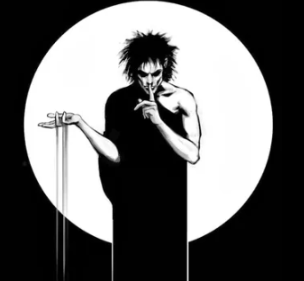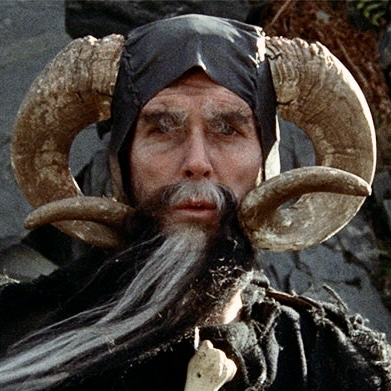- What book is currently on your nightstand?
- Who is the author?
- What genre?
- How do you like it?
- Would you recommend it to others?
I finished both Hyperion and Golden Son a couple of days ago.
I’m kind of disappointed with Hyperion… It was compelling, and the world building was incredible, but the whole book just ends without resolving anything. It was all just lead up to where some resolution should happen and it just abruptly ends. I’m going to have to read the next book just to see where the first book was supposed to go…
Golden Son is the second book to Red Rising. The first book was good, but this one was incredible! I’m definitely hooked on the story now, and invested in where it leads.
Currently reading Children of Time by Adrian Tchaikovsky and Morning Star by Pierce Brown.
Both are scifi - Morning Star is the 3rd book in the Red Rising series - I can’t recommend this series enough!I’m only about 20% into either of them, will report back.
Same happened to me with Hyperion, did read the second one, was not satisfied.
Children of time is very good, I have the second part in my backlog.
Currently reading The Earthsea Quarter by Ursula Le Guin, finished the first book, I like it a lot. I like how they handle magic and names.
Will check your recommended books :)
I have a special place in my heart for Ursula LeGuin - The Wizard of Earthsea was one of my favorite books as a kid. This series was sort of my first jump from goosebumps and other RL Stine novellas to young adult fantasy.
I was more than a little sad when my son didn’t enjoy it as much as me. :'(
Had to buy Red rising now that I read your comment, never heard about it. I recently read Hyperion as well and what made me suffer through the book was all the long ass descriptions of everything. The world is amazing and the story, but I’ll wait a while before I read the others.
Children of Time is amazing! I’ve read Children of Ruin, the second book which is equally as great and just started on the third one. If you haven’t read it, then check out Three Body Problem. I found it better than Hyperion, although very dystopian and kinda sad. Good read though. Thanks for the recommendation.
I have Three Body Problem requested on Libby - just waiting for a copy to come available to borrow. Someone recommended it and Hyperion at the same time, so I’m hoping for a better experience with that one. :D
My wife and I, but mostly her, read too much to purchase anything but our favorites. We rely heavily on our kindles and borrowing books through Libby to keep us from going broke and filling our house.
I hope you enjoy Red Rising!
Red Rising is such a good series. The sixth book was released yesterday, so starting on that as soon as I’m done with my current series.
But an even better series is the Children series by Tchaikovsky. Did a “tour” of his sci-fi books after Children of Time, and can recommend them all. Shards series (starting with Shards of Earth) just finished, so another good series from him there.
But a word of warning about Children of Memory (the final book in Children series):
spoiler
There is a chapter there near the end, and it is the only time, ever, that i have cried at something i’ve read.
EDIT: Sorry if anyone saw that last one before i got it in a proper spoiler. Apperantly lemmy doesn’t follow proper markdown for spoilers…
Looks like I have to add these to my list!
Translation State by Anne Leckie
Definitely a recommendation. If you like Iain Banks, you need to check out Leckie. Get started with the Ancillary trilogy, though, or this one might be confusing.
Currently Reading:
The Iron Heel, by Jack London
Basically one of the first major political dystopias written in the modern sense. It’s super cool too, basically the book is an old manuscript about an attempted socialist revolution, before the world was taken over by oligarchic tyrannical capitalists. There’s basically two stories being told, one in the socialist narrative itself occurring in the past, and one in the footnotes, showing glimmers of some of the capitalist horrors in the “present time”. Super neat way to tell a story, and I’m really enjoying it so far. It’s super heavy handed, and I would maybe call it similar to a socialist version of an Ayn Rand dystopia, like Anthem, but you know… Actually good. And thematically opposite to any coherent thought Ayn Rand tried to impart onto her readers.
Paved Paradise, How Parking Explains the World, by Henry Grabar
Not too far into this one, but it’s a non-fiction book about parking policy, and how parking has basically ruined American cities over the last 70 years. I’ve been really getting into city planning books lately, so we’ll see how much I like this one. Some pretty eye opening statistics so far, and the writing style seems fine.
DNF’d recently:
Walden, by Henry David Thoreau
Jesus this dude is insufferable. I read a lot of dense stuff, and have read many authors that like the sound of their own voice, but Thoreau takes the cake. Preaches self-reliance and disparages philanthropy but squats on his buddies land and lives off of gifts from friends, while doing absolutely nothing and providing no value to society. The guy just exudes a “holier than thou” attitude throughout the whole book, with absolutely nothing to back it up. I quit after 100 pages of this absolute joke contradicting himself the entire time. He would occasionally stumble upon some brilliance that I found a bit insightful, but it was few and far between, and the 98% of the rest was pure, unadulterated garbage. I really haven’t had this negative of a reaction to something I’ve read for quite some time, I generally like everything I read.
The Beekeeper of Aleppo , a 2019 novel by Christy Lefteri. It deals with the plight of refugees from Aleppo in Syria to Europe during the Syrian Civil War. While a work of fiction, it is based on the author’s experience over two summers volunteering in Athens at a refugee center.
Becky Chamber’s “Record of a Spaceborn Few.” It’s an interesting approach to a post-earth science fiction story. Each chapter jumps between different characters, which takes some getting used to after the first two books in the series would focus on the perspective of individual characters for longer stretches.
I’m not enjoying quite it as much as I did the first book in the series, “The Long Way to a Small Angry Planet” (which I thought was wonderful!), but this post is a good reminder to get back to finishing it up.
Someone suggested Models of the Mind by Grace Lindsey. Since I’m always looking for more books on what makes us tick, I added it relatively quickly and got to it at the end of last week.
I thought it was decent. It covers a variety of different ways to investigate the brain, and does go into some technical detail. It gave me a few ideas to investigate further. I personally could have done without the significant chunk that covers the biographical details of the different scientists, though. It was integrated reasonably well, but I would have rather had more depth on the various topics. It doesn’t go to the top of my books on intelligence/etc, but it was decent enough.
It mentioned Jeff Hawkins Thousand Brains (with some mention that there isn’t a lot of evidentiary basis for the structures he’s discussing in the real brain), so I grabbed that, too. I’ve read less of that one, and am taking it with a grain of salt, but i think some of his thoughts may ultimately translate to new approaches to AI down the line. I haven’t read enough to suggest it or not, yet. His other book On Intelligence is similar and not bad though.
I am reading resonance by Hartmut Rosa. I like and would recommend it. It is a sociological academic book that criticizes classic sociology and the indicators we use to be too extremely focused on the possession and use of resources. It tries to propose a scientifically measurable and quantifiable way to determine how much one is ‘resonating’ with the world around them, how much they see it as something happening to them VS something they can shape and feel a response from. I read it for my masters so maybe not for fun reading.
Y’all aren’t gonna gatekeep me cause I do audiobooks are ya?
How dare you still you enjoy the same narrative in a different medium, or be blind!
I like that perspective
Nope. Do people do that?
You still get the story. I like to hear the story in another person voice sometimes.The murderbot books narrator is great!
Audiobooks are awesome, and a totally valid way to consume lit. My only “gatekeeper” opinion is that it’s not reading if you are listening to an audiobook while distracted. Listening to Moby Dick on 2.5x speed while playing video games doesn’t count to me, sorry. But during routine tasks that don’t require thinking such as doing the dishes, or commuting where you can actually think about what you’re consuming and engage with it, and it’s amazing.
If I’m reading something particularly dense, I’ll also listen to the audiobook while reading along with a physical book. It really helps me keep my concentration.
I kind of agree with this. I listen to audiobooks while doing house tasks or driving, but find that I can’t follow it if I’m doing anything that requires thought. Distraction makes it not worth while.
Yeah. Even thinking about something while driving home from work “ruins” an audiobook for me and I absorb nothing. Which I guess is similar to reading a physical book. The only difference is with a physical book, if you aren’t paying attention you usually don’t make any progress (though occasionally I’ll find myself reading on autopilot and have to go back a few pages when I catch myself).
How would you enjoy a book at 2.5x speed. I think I’m with ya there
I can go to 1.75x if it’s a really slow narrator, or a really easy book to follow. But even then, it’s a bit too quick for me and if I’m distracted for even a second I have to rewind a bunch. 1.3-1.5 is usually my sweetspot.
Depends on the narrator. I love me an accent, but an accent generally means I have to cut the pace by 20-25%. Highly technical stuff as well. Otherwise, 2-2.5 is a pretty comfortable pace for me. I occasionally pause to take notes on nonfiction when there’s something I really want to make sure I retain, but I can comfortably discuss the content of all the stuff I read that I way. You just bump it a little over time when it starts to feel slow.
It’s distraction that gets you, though. If you start to pay attention to something else, you can very easily lose the plot.
lol I mention audiobooks as 90% of my reading (because I’m working through different stuff on my ereader) and no one has said anything yet.
I think there’s value in reading with your eyes, but at the end of the day I have 50+ hours a week I can listen to audiobooks while doing other shit, and that’s a lot more content. For most (nonfiction), my retention is pretty comparable with audio, too.
If you haven’t tried adjusting the speed, it’s surprising how quickly you adapt to it as a new normal.
Currently reading Eight Perfect Murders by Peter Swanson. I’ve taken a bit of break from it bc the last chapter I read had a twist that threw me for a loop lol
This weekend I finished up The Bird Way by Jennifer Ackerman. Definitley recommend this one- it’s a fascinating look into bird behavior and intelligence in the ways that birds communicate, play, parent, etc. Super interesting!
Working my way through Fingersmith by Sarah Waters, which is more twisty than I thought it was going to be. I go back and forth on whether or not I like all the twists or if it seems kind of contrived, but I think I’ll probably still finish it up so I can judge it fairly.
Well I should be finishing The Thousand Crimes of Ming Tsu but honestly western magical realism just isn’t doing it for me. It’s August’s small book club read so I’ll get back to it.
In the meantime I’ve been re-reading Last Exit by Max Gladstone because Ruthanna Emrys and Anne Pillsworth are starting a re-read discussion and I’m reminded that it was awesome and that I felt like there was a lot I was missing when I read it the first time, so just refreshing my memory to be able to keep up with the discussion.
Just finished the City of Ghosts, Tunnel of Bones, and Bridge of souls trilogy from VE Schwab. They’re YA fantasy set in modern times, the protagonist being a 12-year-old girl who’s best friend is a ghost. Light and easy reading, and a nice fit for younger audiences.
I’ve been working through Schwab’s works after reading The Invisible Life of Addie LaRue, which is also fantasy, but definitely for older audiences. The chapters alternate in both time and characters, and there are enough twists in the story to avoid predictability.
I’m about 70% through Mexican Gothic by Silvia Moreno-Garcia. It’s not bad, but I think I like Noemí more than I like the book itself.
I struggled a bit with that read myself. It uses a lot of classic gothic tropes and was a bit slow moving for me, (think Castle of Otranto) but my friend absolutely loved it.







